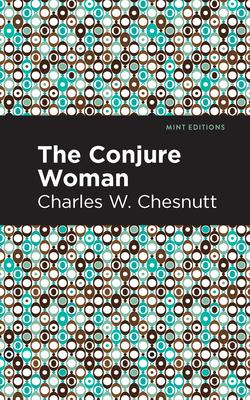The Conjure Woman (1899) is a collection of stories by African American author, lawyer, and political activist Charles Chesnutt. "The Goophered Grapevine," the collection's opening story, was originally published in The Atlantic in 1887, making Chesnutt the first African American to have a story published in the magazine. The Conjure Woman is now considered a masterpiece of African American fiction for its use of folklore and exploration of racist stereotypes of Black Americans, especially those living in the South.
In "The Goophered Grapevine," an old ex-slave named Julius McAdoo--a coachman hired by a white Northerner named John--warns his employer about the land he has decided to purchase. He tells him the story of the vineyard's previous owner, who hired a woman named Aunt Peggy to put a curse on his famous scuppernong grapes in order to stop his slaves from eating them. Each story in The Conjure Woman follows a similar formula, beginning with a narrative situation involving John and his wife, Annie, before leading to a story from Uncle Julius. "Po' Sandy," one of Chesnutt's most acclaimed tales--and a loose adaptation of Ovid's Metamorphoses--opens with John deciding to build a new kitchen for his wife. Uncle Julius drives him to the saw mill, where, while watching the saw cut through a log, he is reminded of the story of Sandy, a local man who was turned into a tree by a conjurer in order to escape slavery. The Conjure Woman is a powerful collection of folk takes and stories exploring themes of race, identity, and class in the nineteenth century South.
This edition of Charles Chesnutt's The Conjure Woman is a classic of African American literature reimagined for modern readers.
Since our inception in 2020, Mint Editions has kept sustainability and innovation at the forefront of our mission. Each and every Mint Edition title gets a fresh, professionally typeset manuscript and a dazzling new cover, all while maintaining the integrity of the original book.
With thousands of titles in our collection, we aim to spotlight diverse public domain works to help them find modern audiences. Mint Editions celebrates a breadth of literary works, curated from both canonical and overlooked classics from writers around the globe.
